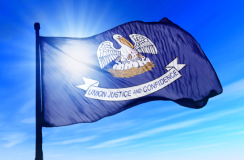Certain expenditures of local government agencies may be paid by another government or other entity. These payments are called on-behalf payments. Governmental Accounting Standards Board (GASB) Statement No. 24 addresses the accounting treatment of on-behalf payments for fringe benefits and salaries.
For the purposes of GASB 24, on-behalf payments are direct payments made by one entity (the paying government or entity) to a third-party recipient for the employees of another, legally separate entity (the employer government or entity). On-behalf payments include pension plan contributions, employee health and life insurance premiums, and salary supplements or stipends.
To illustrate, a state government that makes supplemental salary payments to city police officers and contributions to a pension plan for elementary and secondary school teachers would be known as the paying government for the purposes of GASB 24. The city and school board would be known as the employer governments.
On-behalf payments include payments made by governmental entities on behalf of other governmental entities; payments made by governmental entities on behalf of nongovernmental entities, and payments made by nongovernmental entities on behalf of governmental entities.
On-behalf payments may be made for paid employees of the employer government or entity, and also for volunteers, such as state government pension contributions for volunteer firefighters that work with a city fire department.
GASB 24 requires an employer government to recognize revenue and expenditures or expenses for on-behalf payments for fringe benefits and salaries. The employer government should recognize revenue equal to the amounts that third-party recipients of the payments received and that are receivable at the end of the employer government’s fiscal year.
The employer government is required to recognize on-behalf payments for fringe benefits and salaries even if the payments are received directly by their employee, or directly by a third party (such as a retirement system) on their employee’s behalf.
If the employer government is not legally responsible for the payment, it should recognize expenditures or expenses equal to the amount recognized as revenue.
If the employer government is legally responsible for the payment, it should follow accounting standards for that type of transaction to recognize expenditures or expenses and related liabilities or assets. For example, expenditures or expenses for on-behalf payments for contributions to a pension plan should be recognized and measured using pension accounting standards for state and local governmental employers.
Questions:
- I am engaged to perform a review/attestation engagement of a local government agency. The local government recognized revenues and expenditures for on-behalf payments for salaries and benefits made to its employees during the fiscal year. The increase in revenues puts them in the audit range. Must they count the additional revenues for on-behalf payments in the calculation for determining their reporting requirement to the Legislative Auditor (LLA)?
- Are nonprofit agencies required to recognize on-behalf payments for salaries and benefits, like local governments do?
- Are payments for rent, utilities, etc., paid on behalf of a local government agency by another government agency recognized as revenues and expenditures in the local government’s financial statements?
- How can a local government determine the amount of on-behalf payments for fringe benefits and salaries that are made directly by a paying government or entity directly to the employee of the employer entity, or directly to a third-party (such as a retirement system)?



